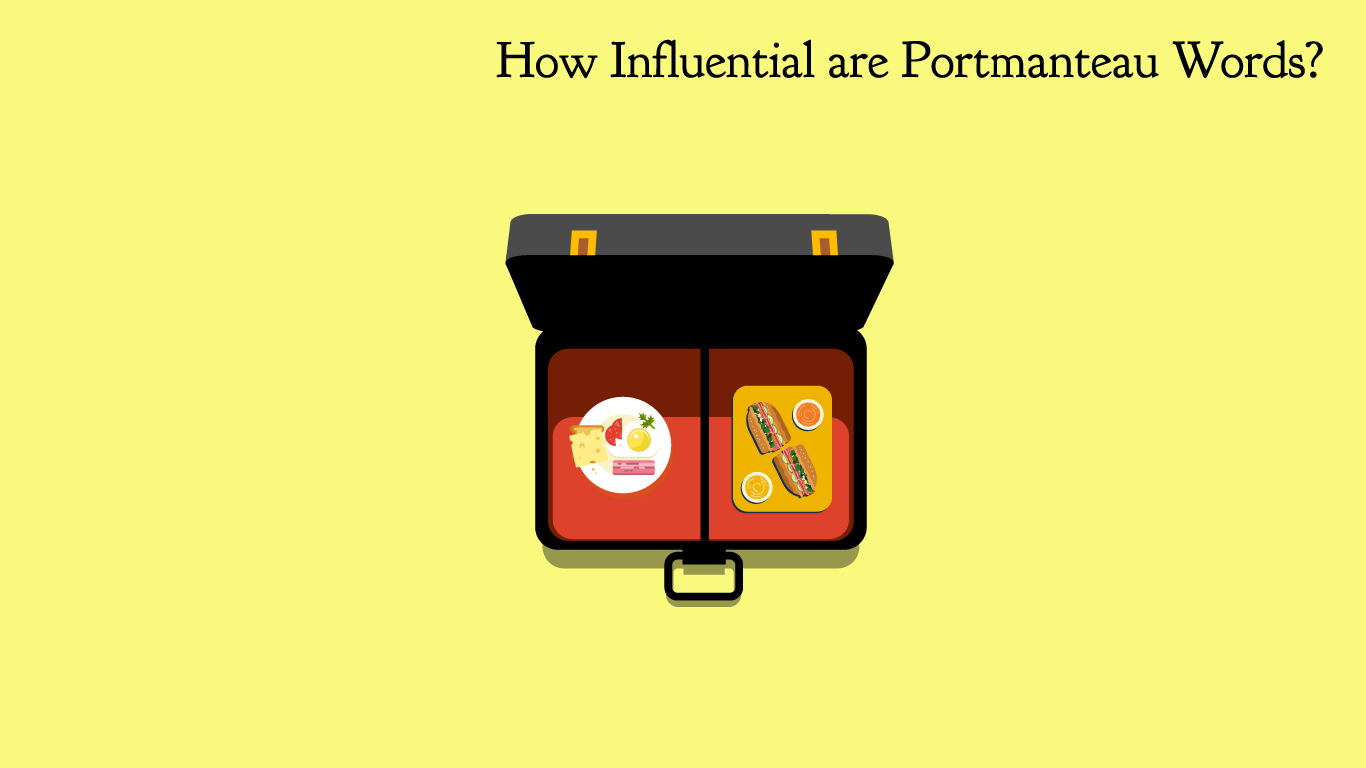In the 1500’s, A Portmanteau was originally used to describe a two sided suitcase, packing two different items into one space. Lewis Carrol in 1882 coined this word to identify the creation of a new word from two other words or names, like smog= smoke + fog. Some old words that impressed us are:
motel = motor + hotel
vitamin = vita (life) + anime (amino acids originally)
stash = stow + cache
Gerrymander = (Governor Eldridge) Gerry + Salamander (shape of his new district)
electrocute = electricity + execution
When we found out that this word creation actually has a name, well, basically it created more interest to learn about its history which already answers our question. The actual naming of a concept further legitimizes its existence. The act of putting two concepts together to create a new idea, like Brexit= Britain + Exit, psychologically obliges us to accept it whether we agree with it or not. It all goes back to the school yard when your peers said to you: “What!? You don’t know what a _______ is?”
Not knowing a new word makes us feel uncool.
But we also associate learning something new with a pleasurable experience. One business communication expert (van Mulken et al. 2005: 708) writes that the “…way in which advertisements are persuasive is by giving their audience a pleasurable experience. The consumer may associate the pleasure they experienced in processing the ad with the product that is being advertised, which in turn may lead to a more positive attitude towards the product.”
Advertising agencies, social media stars and political strategists know this power and use it accordingly. It’s no surprise coining new terms at minimum generates more likes and followers, but changing the political and social landscape that affects a whole continent? We wonder if using the term “Brexit” made the idea more palatable. By reducing a whole political movement into six letters, strategists can package the schoolyard conversation into “What? You’re not voting for Brexit?” So uncool.
Barbier interprets your challenges and translates them into solutions!
Contact us: solutions@barbierinc.com
Barbierinc.com
Sources:
- https://www.dictionary.com/e/cool-words-about-words/
- https://www.etymonline.com/word/portmanteau
- https://www.rd.com/article/portmanteau-words/
- van MULKEN, Margot, Renske van ENSCHOT-van DIJK, Hans HOEKEN, 2005, “Puns, relevance and appreciation in advertisements”, in: Journal of Pragmatics, 37, p. 707-721.


Leave a Reply